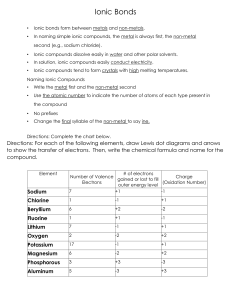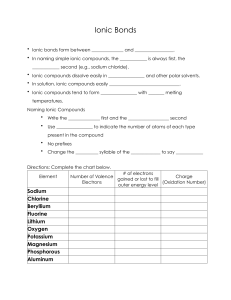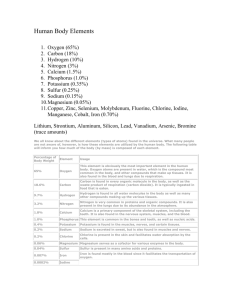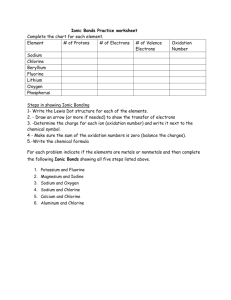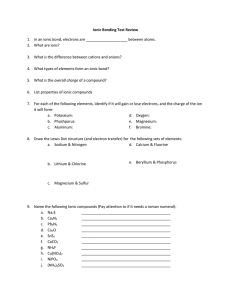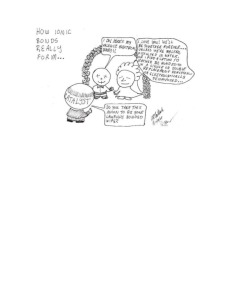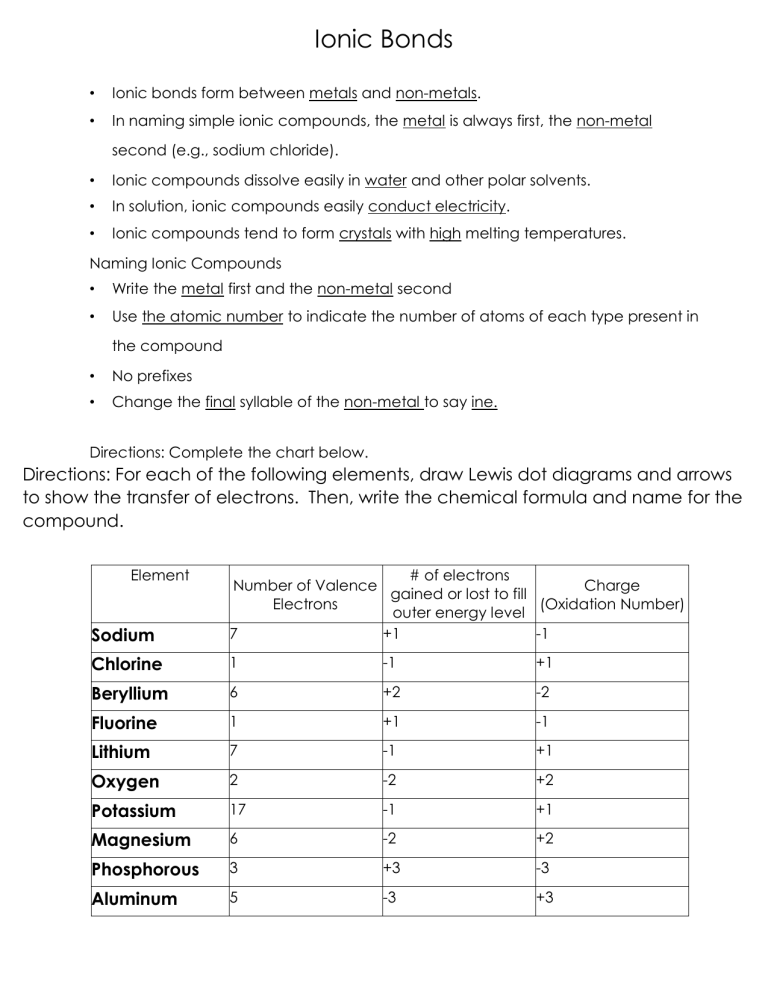
Ionic Bonds • Ionic bonds form between metals and non-metals. • In naming simple ionic compounds, the metal is always first, the non-metal second (e.g., sodium chloride). • Ionic compounds dissolve easily in water and other polar solvents. • In solution, ionic compounds easily conduct electricity. • Ionic compounds tend to form crystals with high melting temperatures. Naming Ionic Compounds • Write the metal first and the non-metal second • Use the atomic number to indicate the number of atoms of each type present in the compound • No prefixes • Change the final syllable of the non-metal to say ine. Directions: Complete the chart below. Directions: For each of the following elements, draw Lewis dot diagrams and arrows to show the transfer of electrons. Then, write the chemical formula and name for the compound. Element Sodium # of electrons Number of Valence Charge gained or lost to fill Electrons (Oxidation Number) outer energy level 7 +1 -1 Chlorine 1 -1 +1 Beryllium 6 +2 -2 Fluorine 1 +1 -1 Lithium 7 -1 +1 Oxygen 2 -2 +2 Potassium 17 -1 +1 Magnesium 6 -2 +2 Phosphorous 3 +3 -3 Aluminum 5 -3 +3 1)Sodium + Chlorine 2) Potassium + Iodine Formula: Na+ ClName: Sodium chloride Formula: K+IName: Potassium iodide 3) Magnesium + Oxygen 4) Calcium + Sulfur Formula: Mg2+O2Name: Magnesium oxide Formula: Ca2+S2Name: Calcium sulfide 5) Calcium + Chlorine 6) Magnesium + Fluorine Formula: Ca2+Cl-2 Formula: ________________________ Name: Calcium dichloride Name: __________________________ 7) Potassium + Bromine 8) Potassium + Oxygen Formula: ________________________ Name: __________________________ Formula: ________________________ Name: __________________________ 9) Sodium + Oxygen 10) Aluminum + Chlorine Formula: ________________________ Name: __________________________ Formula: ________________________ Name: __________________________ 11) Calcium + Fluorine 12) Magnesium + Iodine Formula: ________________________ Formula: ________________________ Name: __________________________ Name: __________________________
